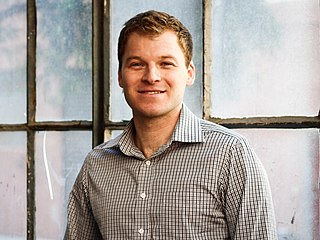A Quote by Ben Goldacre
In an ideal world, you might imagine that scientific papers were only cited by academics on the basis of their content. This might be true. But lots of other stuff can have an influence.
Related Quotes
The magician seemed to promise that something torn to bits might be mended without a seam, that what had vanished might reappear, that a scattered handful of doves or dust might be reunited by a word, that a paper rose consumed by fire could be made to bloom from a pile of ash. But everyone knew that it was only an illusion. The true magic of this broken world lay in the ability of things it contained to vanish, to become so thoroughly lost, that they might never have existed in the first place.
..there is nothing worse than the feeling that no one cares whether we exist or not, that no one is interested in what we have to say about life, and that the world can continue turning without our awkward presence. I began to imagine how many millions of people were, at that moment, feeling utterly useless and wretched—however rich, charming, and delightful they might be—because they were alone that night, as they were yesterday, and as they might well be tomorrow.
There are two generic and invariable features that characterize utopias. One is the content: the authors of utopias paint what they consider to be ideal societies; translating this into the language of mathematics, we might say that utopias bear a + sign. The other feature, organically growing out of the content, is to be found in the form: a utopia is always static; it is always descriptive and has no, of almost no, plot dynamics.
When I might be on a business trip, a lot of people are partying and they may be drunk or under the influence of something that I'm not under the influence of, and that might influence their actions. I'm not even blaming them, but being in the club and not knowing what everybody's motives are, I have to take precautions damn near every week, especially when I go out of town.
The first question she was asked was What do you do? as if that were enough to define you. Nobody ever asked you who you really were, because that changed. You might be a judge or a mother or a dreamer. You might be a loner or a visionary or a pessimist. You might be the victim, and you might be the bully. You could be the parent, and also the child. You might wond one day and heal the next.
In the abstract, it might be tempting to imagine that irreducible complexity simply requires multiple simultaneous mutations - that evolution might be far chancier than we thought, but still possible. Such an appeal to brute luck can never be refuted... Luck is metaphysical speculation; scientific explanations invoke causes.
However dangerous might be the shock of a comet, it might be so slight, that it would only do damage at the part of the Earth where it actually struck; perhaps even we might cry quits if while one kingdom were devastated, the rest of the Earth were to enjoy the rarities which a body which came from so far might bring it. Perhaps we should be very surprised to find that the debris of these masses that we despised were formed of gold and diamonds; but who would be the most astonished, we, or the comet-dwellers, who would be cast on our Earth? What strange being each would find the other!






































